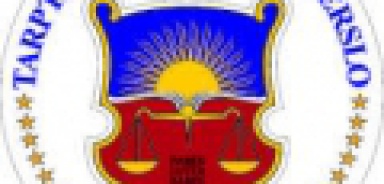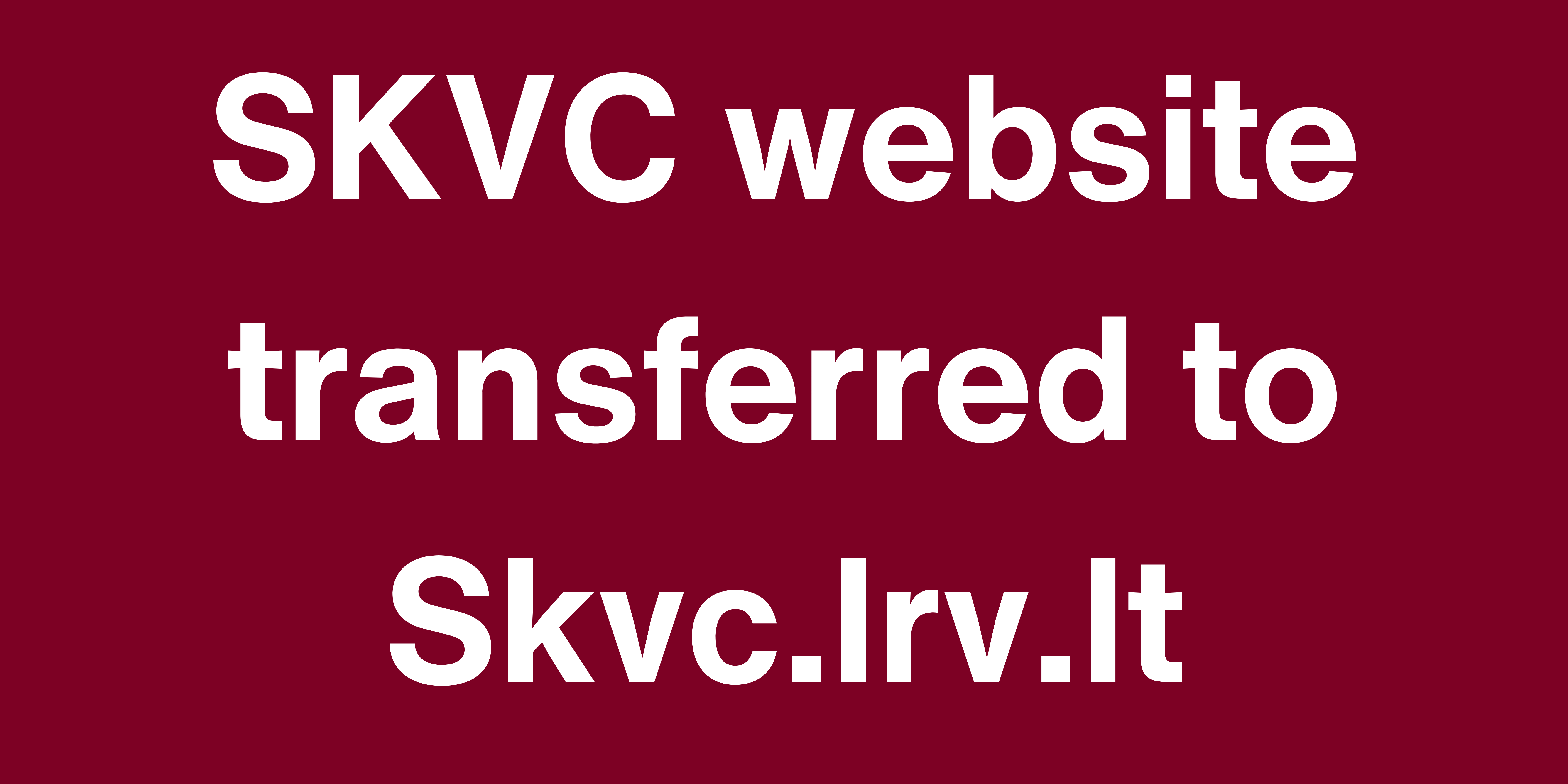On 28 April 2022, the Director of SKVC signed an order to accredit the International School Of Law And Business (Tarptautinė teisės ir verslo aukštoji mokykla, TTVAM) for a 3-year term.
The experts took the decision to evaluate the performance of TTVAM negatively.
Key expert insights for the International School of Law and Business
Two of the four evaluation areas - Studies and Research (Art) Activities and Impact on Regional and National Development - were rated unsatisfactory by the experts, as not meeting the minimum requirements and having significant drawbacks. Management and Quality Assurance areas were each rated as 2 - meeting the minimum requirements, but with drawbacks that need to be addressed.
The experts noted that the higher education institution had undergone significant changes during the evaluation. The TTVAM has a new shareholder as of 2021, there has been a change in the management of the TTVAM, and a new strategy was developed at the end of the year. Although the experts had a positive view of the planned changes, they were not yet in a position to assess their implementation and give credit for it.
During the evaluation period, the higher education institution operated according to the 2012-2018 strategy, which has been extended until 2021. TTVAM notes in its self-assessment report (SER) that since 2016 the number of students and, consequently, the number of lecturers, has decreased significantly due to major changes in the demographic situation in Lithuania. The changes have only partially contributed to the achievement of the objectives set out in the previous strategy.
The experts identified the fact that only one full-time lecturer is employed at TTVAM as a particular concern, while the average workload of lecturers at TTVAM is less than 0.3 full-time equivalent. This situation, according to the experts, is a high risk factor for the achievement of quality studies and other strategic objectives.
The experts identified the lack of effective risk management measures and the lack of operational conditions and potential of TTVAM as the main drawbacks.
On the positive side, the experts highlighted the TTVAM's support to students struggling to pay their tuition fees, as well as the investment in e-learning during the pandemic.
In the area of Quality Assurance, the experts confirmed that the quality management system at TTVAM is formalised and that there is a system of feedback from students, alumni and social partners, but that in practice, lecturers and social partners are not sufficiently involved in the processes and the quality assurance cycle is not complete. There are also gaps in the system with regard to the structure of the ethics, complaints and appeals committees. However, the small size of TTVAM helps to address issues quickly through informal contacts, which contributes to effective support for students.
Unfortunately, the frequent remark by various other expert panels about the lack of analytical depth in the self-evaluation reports of Lithuanian higher education institutions under review is also common to TTVAM. There is a lack of in-depth, self-critical insight, identification of the higher education institution's strengths, drawbacks, opportunities and threats, as well as a lack of coherent actions to improve its performance in relation to the analysis carried out. This obstructs the emergence of a quality culture that is expected of Lithuanian the higher education institutions in this evaluation cycle.
The areas of Studies and Research (Art) and Impact on Regional and National Development are each scored 1 point. First of all, the TTVAM did not provide an overview of its achievements in relation to the indicators for studies and science set out in the 2012-2021 strategy. The expert panel, after analysing the documents provided by the TTVAM and the information received from various social actors during the visit, concluded that many of the objectives remained unfulfilled.
The reduction in the number of study programmes offered from 11 to 5 reflects the serious difficulties in matching the learning offer with the needs of future students and the labour market. Some programmes have lost their accreditation, signalling a decline in the quality of studies.
However, the biggest drawback is the absence of research activities and, consequently, of results, which has made a positive assessment in this area impossible.
The academic quality of the study programmes was seriously questioned by the experts. In a situation where many Lithuanian students are admitted to the TTVAM with a very low admission score, where there are practically no full-time lecturers and where the majority of the students are practitioners in their field, working in various businesses, who confirmed during the visit that they are not interested in engaging in research, and where several final student theses have been assessed as highly satisfactory, the experts have concluded that the conditions for a high level of academic quality are inadequate.
In the area of internationalisation, there is a high number of international students, which the TTVAM is doing a good job of attracting (international students represent 23% of the total student population). However, the limited international mobility of students from Lithuania and of the TTVAM staff shows that internationalisation is unbalanced.
Impact on Regional and National Development is also assessed negatively. TTVAM cooperates with a group of social partners who are closely involved as internship providers, employers of graduates or guest lecturers, but this is only part of the opportunities for cooperation between the higher education institution and social partners. Study programmes are evaluated and updated without a detailed analysis of regional and national needs and developments. Graduates have a positive perception of TTVAM, but do not participate in regular activities for monitoring and improving the quality of studies (study committees, working groups). Lifelong learning programmes have not been implemented. Lifelong learning activities, as a strategic priority for TTVAM, should be actively pursued and become part of the internal quality assurance system.
The International School of Law and Business is located in Vilnius was founded in 1998 as D. Daugvilienė’s Business College. In 2001 the College changed its name to Vilnius College of Business and Law, and in 2009 it re-registered its status to a legal person (a limited liability company) under its current name. TTVAM offers study programmes in business, tourism and recreation, finance and cosmetology. Currently, new students can enrol in study programmes of 180 ECTS in Business Management, Tourism and Hotel Business, Finance, and Logistics and Forwarding, which lead to the diploma of Professional Bachelor in Business Management. The programmes are offered in Lithuanian whilst the programmes in Business Management and Tourism and Hotel Business are also taught in English. Despite its name, TTVAM no longer provides programmes in law. The College has no separate faculties or academic departments. In 2020-2021 683 students were attending the Business Management, Logistics and Forwarding, Tourism and Hotel Business, Finance and Cosmetology study programmes. During the last academic year, 156 students from foreign countries arrived for full-time studies in the College. As of 1st October 2020, 46 lecturers and 23 administrative employees worked in the College. ISLB was last reviewed by SKVC in 2012 (with a positive outcome). In 2021 the ownership of the College shifted to a new shareholder who holds all the shares of ISLB.
The full evaluation of the International School Of Law And Business can be found here.




